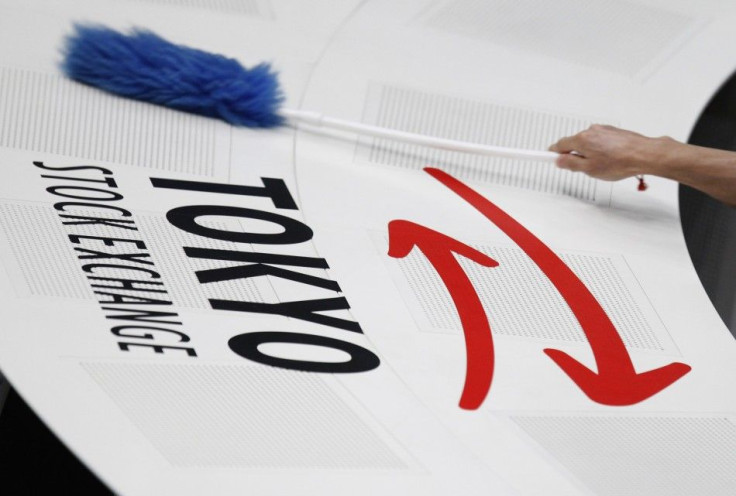Asian Markets Fall On Weak Japan, South Korea Data

Asian markets fell Thursday as investors' concerns about the weakening global economy was revived by the declining Japanese retail sales and disappointing South Korean manufacturers' confidence data.
Japan's Nikkei Stock Average was down 0.74 percent or 67.08 points to 9002.73. Among major gainers were JTEKT Corp (4.50 percent), JFE Holdings Inc (3.74 percent) and Aozora Bank Ltd (3.36 percent).
China's Shanghai Composite fell 0.11 percent or 2.27 points to 2050.97 and Hong Kong's Hang Seng was down 1.27 percent or 251.65 points to 19536.86. Among major losers were Sino Land Co Ltd (4.20 percent) and Citic Pacific Ltd (3 percent).
South Korea's KOSPI Composite Index dropped 1.48 percent or 28.56 points to 1899.98. Shares of Samsung Electronics Co Ltd fell 1.30 percent and those of LG Electronics Inc fell 1.54 percent.
India's BSE Sensex fell 0.45 percent or 78.36 points to 17412.45. Among major losers were Tech Mahindra Ltd (5.46 percent), Sesa Goa (2.64 percent) and Bank of India (1.68 percent).
According to data released by Japan's Ministry of Economy, Trade and Industry, the country's retail sales saw a decline of 0.8 percent in July down from 0.2 percent increase in June. Investors were worried to note that private consumption in Japan was losing momentum.
Earlier this month, it was reported that Japan's economic growth slowed down in the April-June quarter compared to the first three months of the year, indicating that the country was losing the growth momentum affected by the soft global demand and weak consumer spending. Japan's economy grew 0.3 percent in the second quarter, down from 1.2 percent in the first three months of the year.
Investors feel that the Bank of Japan would need to urgently expand its asset purchase program (APP) with Japan's economy having lost its growth momentum faced with deflation and the strengthening of the yen.
Meanwhile, according to data released by the Bank Of Korea (BoK) Thursday, South Korean manufacturing BSI Index for September was at 75. A reading below 100 is an indication that the number of firms that see business conditions deteriorating are more than those that see an improvement. With South Korea's economy continuing to slow down, investors feel that the BoK will be under pressure to announce monetary easing measures at the next meeting in September.
© Copyright IBTimes 2024. All rights reserved.





















